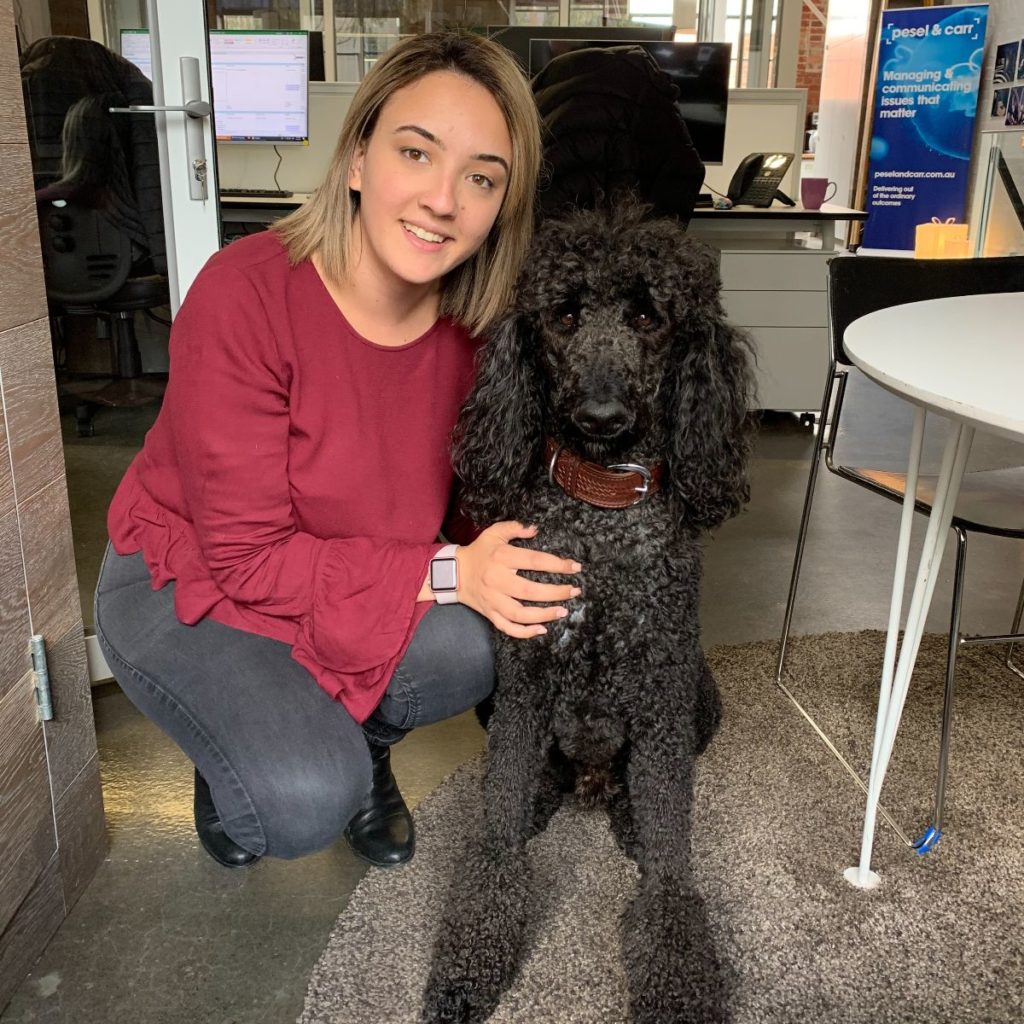Occasionally, a cynic will question the validity of my role as Culture Manager at Pesel & Carr.
“How could you uphold a job like that? You have paws! You can’t even type an email!” they proclaim.
Or “your phone calls consist of nothing but panting and the occasional bark!”, and who could forget, “who ate six packets of short bread cookies? Those are meant to be for everyone!”
What these people don’t understand is that my role is more abstract than they think. When faced with these assertations I need only point to the enduring strength and voiceless bond of therapy dogs – and the value I bring is clear.
A colleague told me that when she was at university, two therapy dogs would frequent the library during exam time. So, on her study breaks, instead of scrolling through social media, she was patting these soft, smiley Golden Retrievers. She said it helped calm her mind and allowed her to return to her work feeling focused and confident.
Research testifies to this phenomenon. Studies show that university students reported less anxiety, and increased happiness and energy, following an interaction with a therapy dog, compared with a controlled group of students who hadn’t.
Such positive reactions are also reflected in schools, where dogs have been used to assist with the social/emotional learning needs of younger students. The range of subsequent benefits includes increased attendance, heightened confidence, improved motivation and even enhanced relationships with peers and teachers.
It’s all a testament to the human-animal bond – the mutually beneficial and dynamic relationship that people share with their animal companions.
So although I can’t send an email, and I may enjoy quite liberal access to the staff kitchen, when I rest my head on the lap of a coworker, I know I’m doing a good job.


